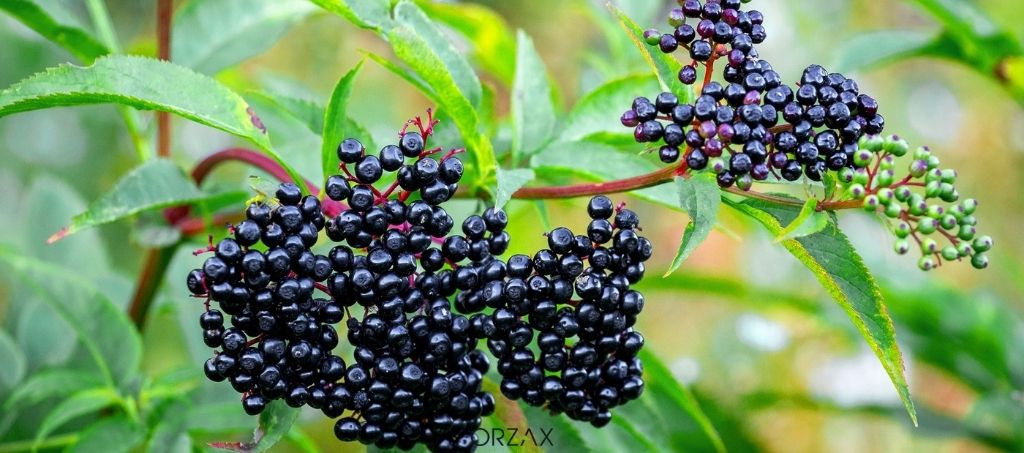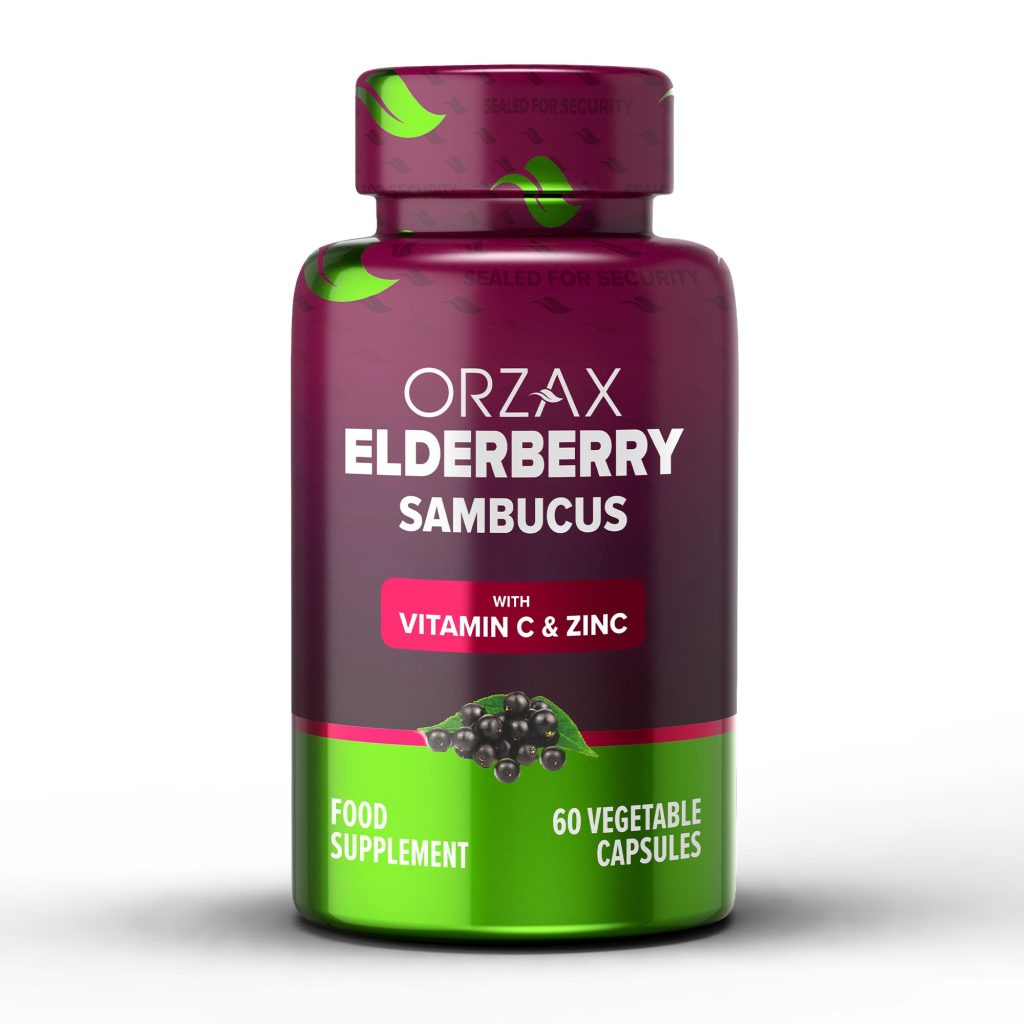Elderberry (Sambucus nigra) has been part of European traditions for centuries. From homemade syrups to aromatic elderflower teas, this berry has long been valued as a natural ingredient. Today, elderberry supplements bring this heritage into modern life, available in convenient forms.
A Look Back: Traditional Uses of Elderberry
In European households, elderberries were often prepared as syrups or tonics, especially during colder months. Elderflowers, with their delicate aroma, were also widely used in infusions. While traditional use does not imply medical benefits, it highlights the cultural importance of elderberry across generations.
Elderberry and Its Natural Composition
Elderberries are small, dark purple fruits rich in flavonoids, particularly anthocyanins. These naturally occurring plant compounds are responsible for their deep colour and have been the subject of numerous studies on their antioxidant properties.1
What Does the Research Say?
Scientific interest in elderberry has grown over the years. Some studies suggest it may support seasonal wellbeing, although evidence is still preliminary and further research is needed. Vukojević et al. (2011) report that elderberries are rich in antioxidants, particularly anthocyanins, which have been studied for their potential role in neutralising free radicals.2 While no specific health claims are authorised in the EU, these findings underscore the fruit’s traditional use and nutrient-rich composition.
Elderberry has long been valued as a traditional fruit, and while no specific health claims are authorised in the EU, ongoing research continues to explore its potential.
Elderberry in Modern Supplements
With the rising interest in plant-based products, elderberry is now presented in diverse supplement formats, providing a convenient way to incorporate this traditional fruit into daily routines while bridging its cultural heritage with modern demand.
How to Include Elderberry Supplements in Your Daily Routine
Incorporating elderberry supplements into your lifestyle can be simple:
- Follow label instructions: Always use the recommended serving size.
- Combine with a healthy diet: Supplements should complement a varied diet, not replace it.
- Consistency matters: Regular intake may be more beneficial than occasional use.
- Consult a healthcare professional if needed: Especially important for pregnant or breastfeeding individuals, or those with medical conditions.
Choosing High-Quality Elderberry Supplements
When selecting elderberry supplements, consider the following:
- Trusted brands: Ensure the product meets UK quality and safety standards.
- Clear ingredient labelling: Dosage and ingredients should be transparent.
- Good Manufacturing Practices (GMP): Products manufactured under GMP standards demonstrate a commitment to quality and safety.
Elderberry supplements provide a simple way to include a traditional European berry in modern life. With a range of formats available, they can easily fit into different lifestyles. Remember, supplements are designed to complement a balanced diet and healthy lifestyle, not replace professional medical care.
Key Takeaway: By choosing high-quality elderberry supplements, consumers can enjoy this timeless berry safely and conveniently, as part of a balanced approach to daily living.
Elderberry Sambucus
Orzax Elderberry Sambucus contains 2000 mg elderberry fruit extract, along with vitamin C and zinc in each capsule.
In stock
References
- Pahlke, G., Ahlberg, K., Oertel, A., Janson-Schaffer, T., Grabher, S., Mock, H. P., Matros, A., & Marko, D. (2021). Antioxidant Effects of Elderberry Anthocyanins in Human Colon Carcinoma Cells: A Study on Structure-Activity Relationships. Molecular nutrition & food research, 65(17), e2100229. https://doi.org/10.1002/mnfr.2021002291
- Zakay-Rones, Z., Thom, E., Wollan, T., & Wadstein, J. (2004). Randomized study of the efficacy and safety of oral elderberry extract in the treatment of influenza A and B virus infections. The Journal of international medical research, 32(2), 132–140. https://doi.org/10.1177/147323000403200205



